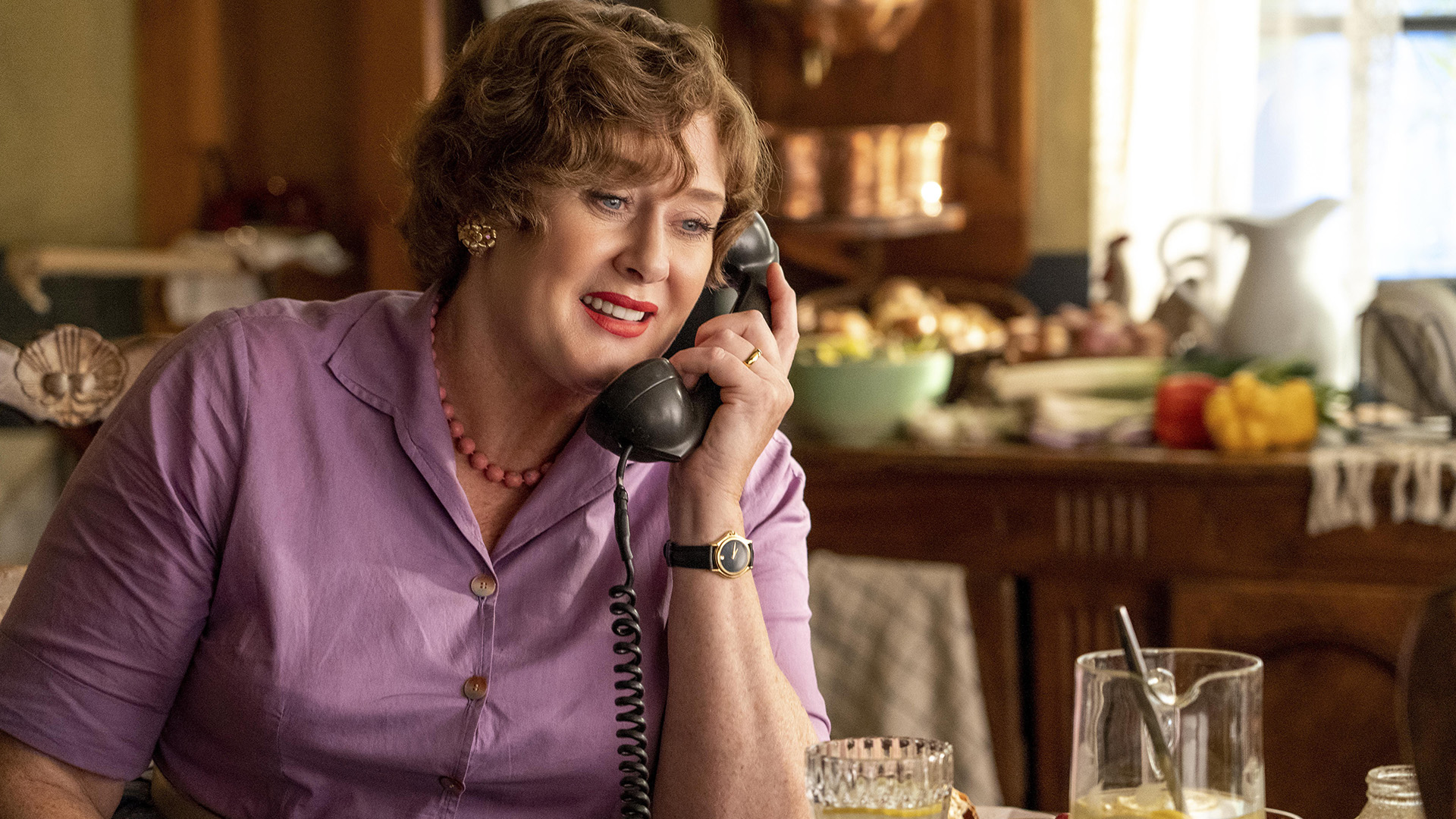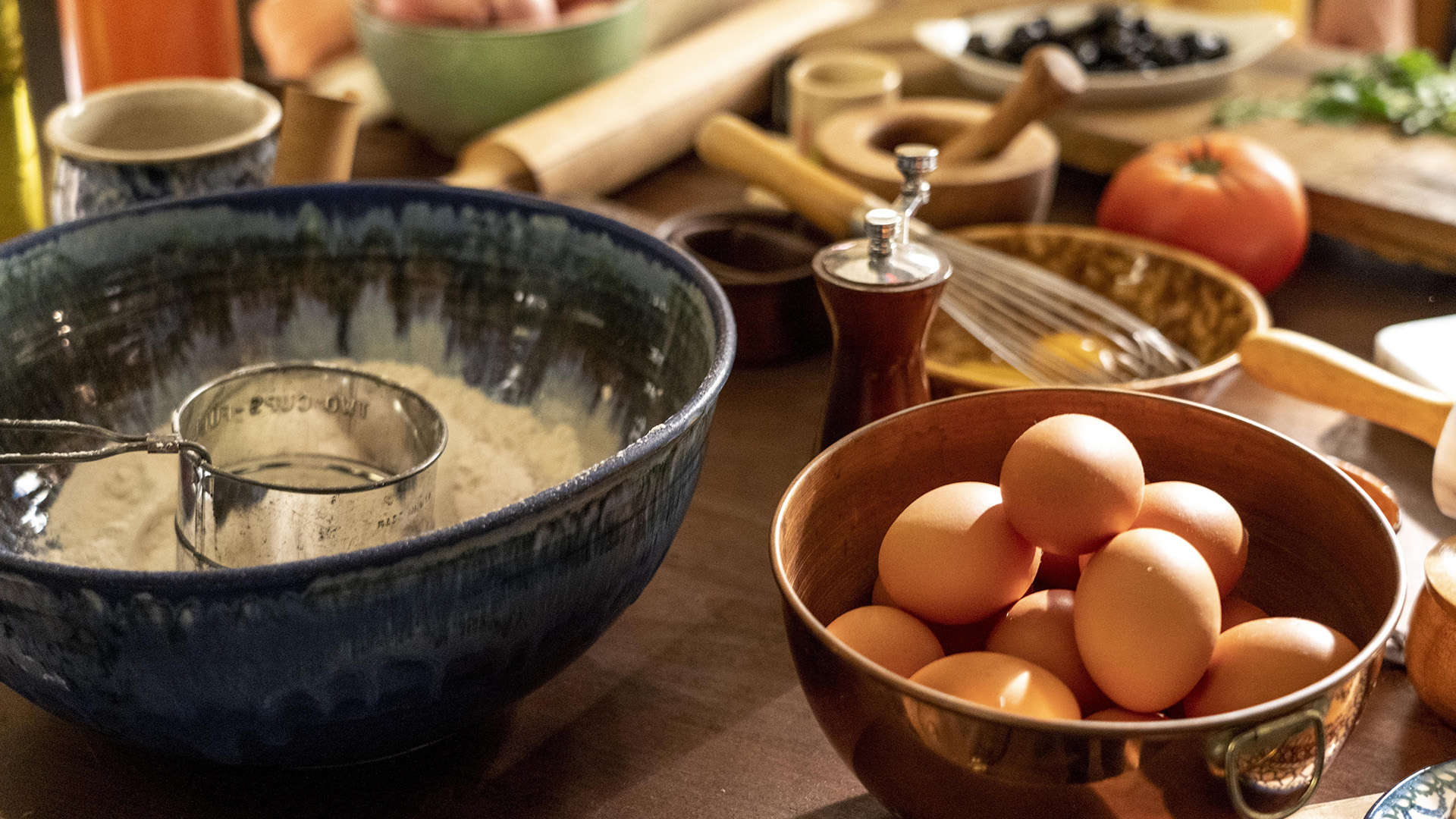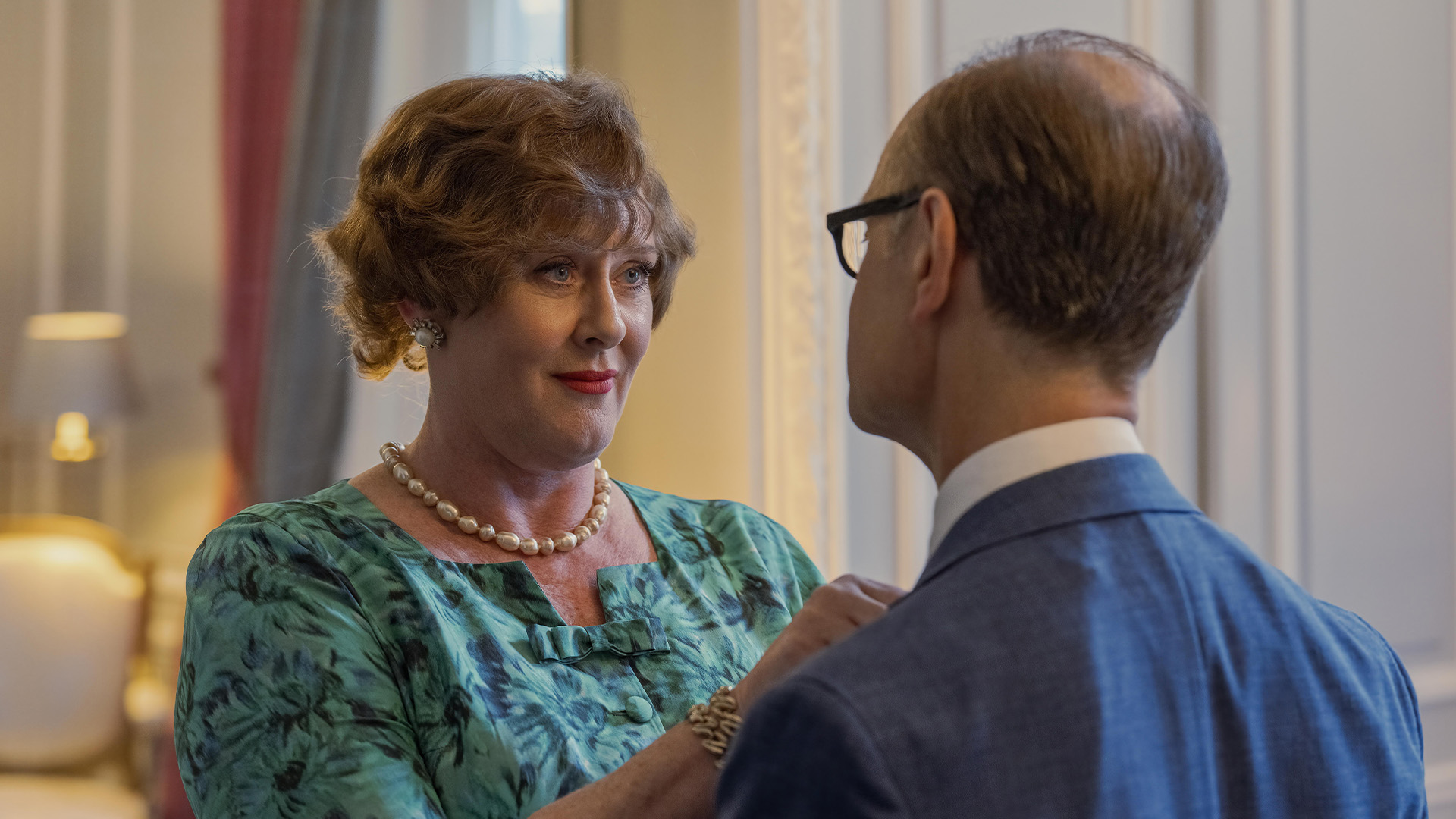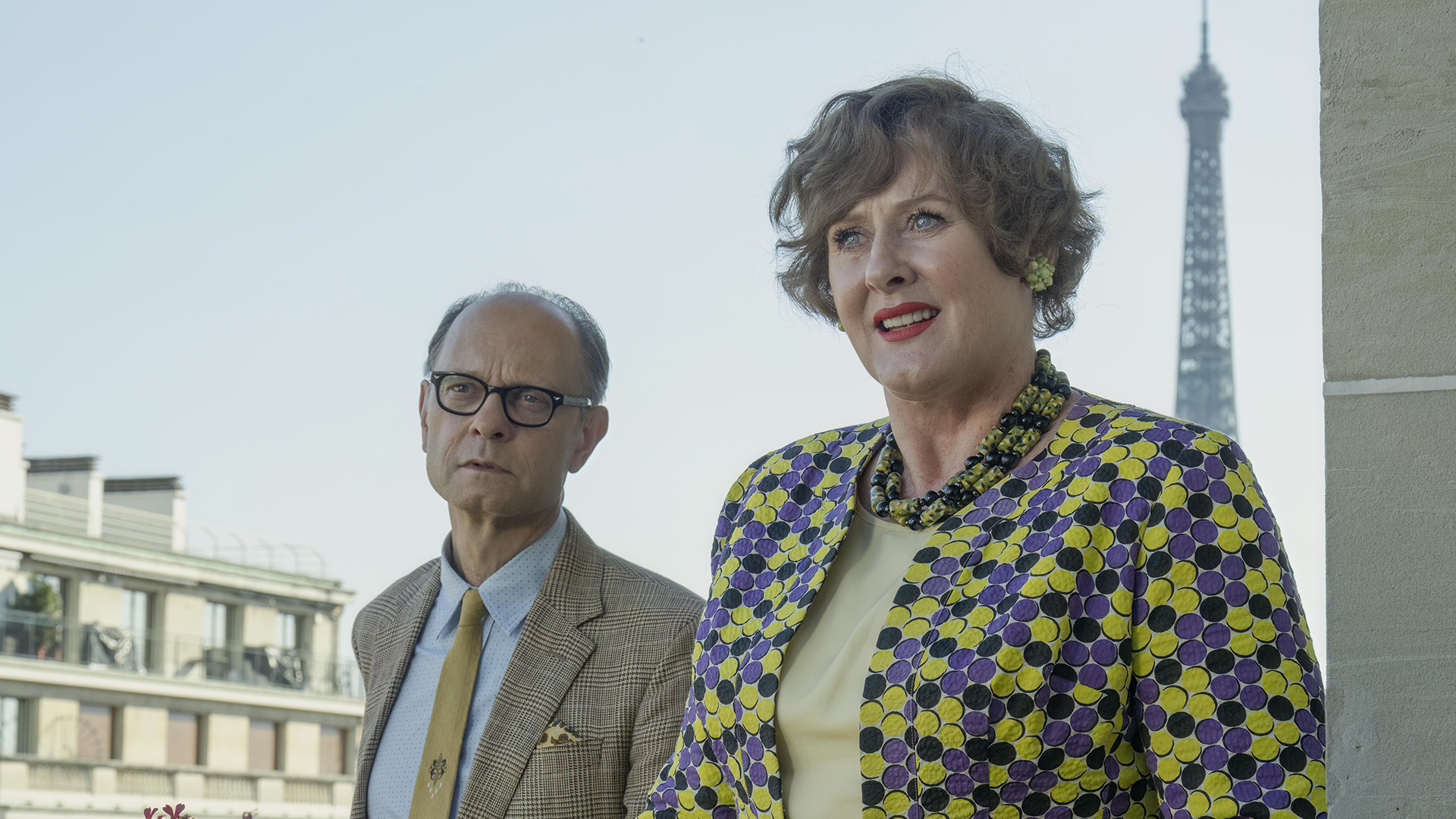Pioneering TV chef show Julia gets even more delicious in its new season
This unexpected delight of a show moves to Paris in the first episodes of a welcome second course.

A modern culinary revolution returns to screens with a new season of Julia. The gently comic true story of TV chef Julia Child has whetted Steve Newall’s appetite for more.
The first season of Julia, like the work of its namesake, proved to be a bit of an unexpected delight. The comic-tinged show chronicles Julia Child’s rise from chef and cookbook author to television personality in the early 1960s. As the show recounted, Child saw an opportunity to enrich the lives of American women, turning time spent in the kitchen into a window to the world.
This assumption about gender roles is definitely of its time—and doesn’t go outright unchallenged in the show—but there’s no denying the unappetising fare that made up the mainstream American diet of the time. That’s no slight on the labour of women in kitchens across the US, but more a reflection on the narrow and boring worldview the middle classes had towards culinary experiences. It was these middle classes who most embraced the advent of the television, and through Child’s show The French Chef could peer into a world in which meals were exciting, aspirational—and crucially, came with a sense of fun to match the challenges of preparation.

Many of the joys in season one’s narrative came in the pioneering milestones Child achieved, the stuffy, male-dominated TV industry of the time positioning the posh-accented chef as something of an unlikely underdog. There’s much we take for granted today that Child was among the first to encounter and overcome—and 1962 seems like a world away when you consider how revolutionary it was for her to simply cook a French omelette when appearing on a public access literary show to promote her cookbook of the time.
As Julia chronicles Child’s journey to star of The French Chef, it is fascinating in showing just how much needed to be figured out for the first time when making a cooking show. How do you show people how to cook a Coq au Vin—which takes over two hours—in just 28 minutes, for instance? How do you position the cameras to film it? And can it be done without making cock jokes?
By the time the first season of Julia wraps, Julia Child has become a national sensation in the US. Her joie de vivre had proved infectious to viewers, colleagues and contemporaries, and thanks to a brilliant portrayal of Child by Sarah Lancashire (Happy Valley), the character has the same impact on present-day audiences—we too want her seated at our dinner table.

Lancashire brings Child to life with verve, emotional depth, ambition and a wee bit of randiness—ably mirrored by Frasier’s David Hyde Pierce, who often provides additional comic relief as Julia’s husband Paul. In what feels like a happy coincidence of casting, Cheers (and sometimes Frasier) alum Bebe Neuwirth is also in the mix as Child’s good friend and drinking buddy Avis—flashes of the golden days of sitcoms past presenting themselves in this pleasantly comic biographical story (including a supporting role by Who’s The Boss‘s Judith Light).
Having found her feet in season one, it’s pleasing that Julia’s new episodes let Child take a breather—of sorts. While not lacking in pressure and drama, the first three episodes see the chef happily back in France, the source of her culinary inspirations, as she works on a new cookbook. Dramatic tension comes from Child’s race against time to come up with new recipes working alongside her long-established collaborator Simca Beck (the great Isabella Rossellini)—and their butting of heads during the process.
It’s a far cry from the scramble of TV production though, and this time in France feels languid and seductive (in more ways than one). The Childs, along with her editor Judith (Fiona Glascott) and, eventually, Avis, all find themselves experiencing things they never would have at home—and in the orbit of real-life characters like fellow culinary icon James Beard or master French chef Bugnard (who describes Child’s Mastering the Art of French Cooking to his students as “the most influential cookbook ever published in America”).

There’s even an opportunity for existentialist philosopher Jean-Paul Sartre to make an appearance. Sartre’s a riot, bemoaning the pain of life, criticising Shakespeare as incomprehensible sentimental tripe, but noting “Bugs Bunny, he has insight, apart from that I’m drawing a blank”. Stockard Channing pops up for a brief appearance too, joining what’s becoming a strong roster of supporting or guest stars on the show (James Cromwell, Rachel Bloom etc).
Despite the focus on France in these early episodes, there are still pots brewing on the home front—network machinations, sexual liberation, civil rights—but these will make their presence felt more keenly on the palate in future episodes. For now, it’s been a delight to spend some time abroad with friends, and look forward to more of this tasty mix of biopic, comedy and drama in coming weeks. If you haven’t taken a bite of Julia yet, what are you waiting for? Bon appétit!
























